Children Education
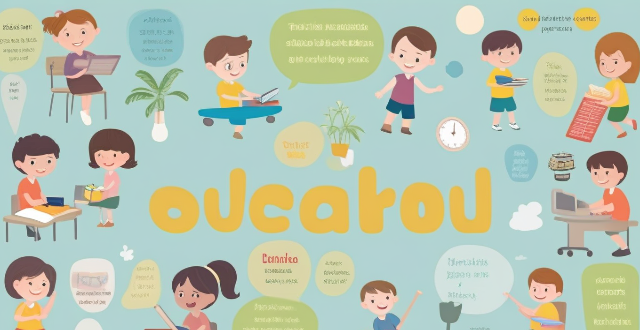
How does preschool education prepare children for kindergarten and beyond ?
Preschool education is crucial in preparing children for kindergarten and beyond. It helps them develop essential skills such as socialization, language development, cognitive development, emotional development, fine motor skills, and gross motor skills. These skills are crucial for success in kindergarten and beyond, where children will be expected to work and play with others, read, write, and communicate effectively, navigate complex social situations, form healthy relationships, and participate in physical activities. By attending preschool, children gain a strong foundation for future learning and success in all areas of life.
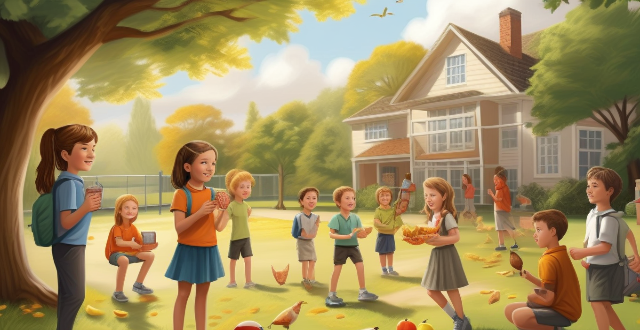
What is the impact of climate change on children's access to education ?
Climate change affects children's access to education through extreme weather events, health impacts, food security issues, and displacement and migration. These challenges make it difficult for children to attend school or continue their studies. It is crucial to take action now to mitigate the effects of climate change and protect the future of education.

What are the key elements of child safety education ?
Child safety education is crucial for the well-being and protection of children. It involves teaching children about potential dangers and how to avoid them. This educational process helps children develop a sense of awareness, responsibility, and self-protection. In this article, we will discuss the key elements of child safety education. The main elements of child safety education include personal safety, stranger danger, internet safety, home safety, school safety, and road safety. Personal safety includes teaching children about personal boundaries, private parts, and inappropriate behaviors. Stranger danger education helps children identify potential threats from unknown individuals. Internet safety education is essential in today's digital age. Home safety education focuses on creating a safe environment for children at home. School safety education aims to create a safe learning environment for children. Road safety education is crucial for children who walk or cycle to school or play outside. By focusing on these key elements of child safety education, we can help children develop the skills and knowledge they need to stay safe and protect themselves from potential dangers. Child safety education is an ongoing process that requires the involvement of parents, schools, communities, and governments.
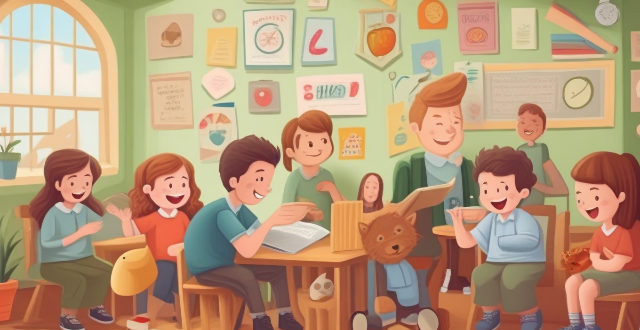
What are the benefits of preschool education ?
Preschool education is crucial for children's future academic success and overall development, offering benefits in social development, cognitive growth, early literacy and math skills, fine and gross motor skills, self-help abilities, school readiness, and parental involvement. It helps children develop interpersonal skills, emotional intelligence, language skills, problem-solving abilities, reading readiness, math concepts, hand-eye coordination, physical fitness, independence, life skills, routine adaptation, classroom etiquette, family partnerships, and parent education. Preschool prepares children for elementary school by nurturing their social, emotional, cognitive, physical, and self-help skills in a stimulating and supportive environment.
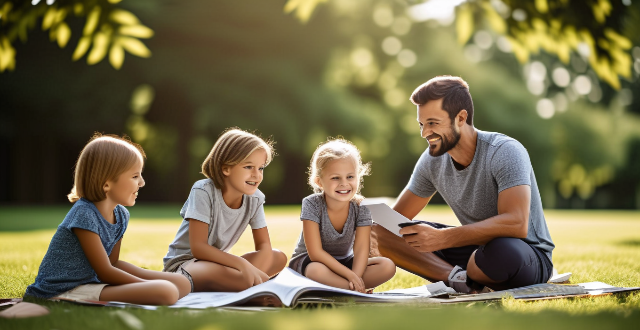
What are the benefits of sports education for children's development ?
Sports education offers a wide range of benefits for children's development, including improved physical fitness, motor skills, cognitive abilities, stress reduction, social skills, self-esteem, emotional regulation, and resilience. These skills are essential for building strong relationships and succeeding in both personal and professional life. By encouraging children to participate in sports activities, parents and educators can help them lead healthier lives and develop life skills that will serve them well into adulthood.

In what ways can sports education foster a lifelong love of physical activity ?
The text discusses the role of sports education in promoting a lifelong passion for physical activity among children. It underscores the importance of making sports fun and enjoyable, offering choices, creating a supportive environment, improving fitness levels, building motor skills, developing sportsmanship, teaching teamwork, perseverance, discipline, and time management. The author emphasizes that sports education is essential for children's overall development and encourages prioritizing it in schools and communities to foster healthier, happier lives filled with lifelong love for physical activity.

What are the implications of climate change on the education and well-being of children worldwide ?
Climate change has significant impacts on the education and well-being of children worldwide. These impacts include disruption of education due to school closures and migration, health issues related to increased heatwaves and air quality problems, nutritional deficiencies from crop failures and food insecurity, psychological stress from natural disasters and anxiety about the future, loss of playgrounds and outdoor learning spaces, and socioeconomic impacts such as economic hardship and inequality in educational opportunities. Addressing these challenges requires a comprehensive approach that involves mitigating the effects of climate change and adapting educational systems to be more resilient.
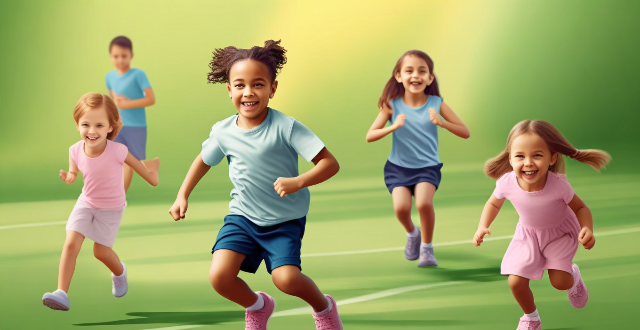
Why is it important for parents to support their children's participation in sports education ?
Participating in sports education is essential for a child's development as it teaches valuable life skills such as teamwork, perseverance, and discipline. Parental support in children's sports education is crucial as it encourages physical health, fosters emotional well-being, promotes social development, instills lifelong habits, and supports academic performance. By encouraging participation in sports, parents play a significant role in their children's overall development.

What role do children play in combating climate change ?
The article emphasizes the pivotal role children can play in combating climate change. They can contribute through education and awareness, innovation and creativity, advocacy and action, and by making sustainable lifestyle changes. By empowering children to understand and act on climate issues, we can ensure a more sustainable future for all.

How do I provide for minor children in my estate plan ?
When it comes to estate planning, one of the most important considerations is how to provide for your minor children. Here are some steps you can take to ensure that your children are taken care of financially and emotionally after you're gone: Create a will or trust, name a guardian, establish a trust fund, consider life insurance, and make sure your beneficiaries are up-to-date.

How can parents implement successful home teaching strategies for their children ?
This article discusses successful home teaching strategies that parents can implement for their children. The key strategies include creating a conducive learning environment, setting clear goals and expectations, encouraging active learning, using positive reinforcement, fostering open communication, and modeling good study habits. These strategies aim to support children's academic growth and help them develop essential life skills.
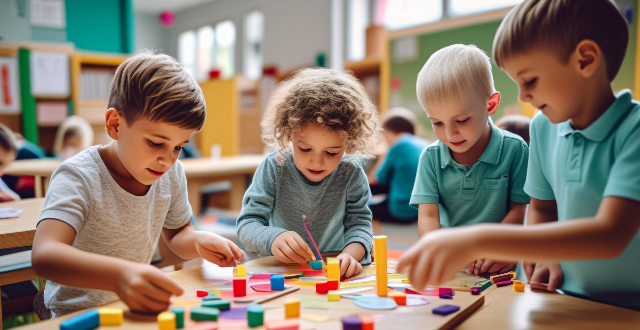
What role do teachers play in preschool education ?
Teachers in preschool education play a pivotal role in laying the foundation for children's lifelong learning and development. They are responsible for guiding learners, building foundational skills, encouraging creativity and imagination, promoting physical health and wellness, supporting emotional development, facilitating socialization, and partnering with families. Teachers provide emotional support, foster curiosity, focus on social and communication skills, introduce cognitive concepts, engage children in creative activities, ensure physical activity and healthy habits, contribute to emotional well-being, help children learn how to be part of a community, and work closely with families. Their impact extends beyond the classroom into the formation of well-rounded individuals ready to face future challenges.

What role does technology play in modern home education ?
Technology has revolutionized modern home education by providing enhanced learning opportunities, personalized experiences, and facilitating parent-child collaboration. Online courses, educational apps, virtual reality, adaptive learning software, interactive whiteboards, and gamification are just some of the tools used to create engaging and effective learning environments. Additionally, video conferencing, online communities, and digital portfolios help parents stay connected and involved in their child's education. Technology will continue to play a significant role in shaping home education practices in the future.

How can we protect children from the adverse effects of climate change ?
Climate change poses significant threats to children's well-being, affecting their health, education, nutrition, and mental health. To protect them, we can focus on education and awareness, health protection, nutrition and food security, mental health support, and infrastructure and urban planning. This includes integrating climate change education into school curriculums, engaging communities in workshops, ensuring safe housing and air quality, improving healthcare accessibility and vaccination programs, establishing school gardens and supporting local farmers, providing counseling services and community support networks, and developing resilient infrastructure and safe public spaces.

What are the implications of climate change for future generations, specifically children ?
Climate change poses significant challenges and threats to future generations, particularly children. The implications of climate change for children are multifaceted and far-reaching, affecting their health, safety, education, and overall well-being. Health implications include increased respiratory problems, spread of infectious diseases, and nutritional deficiencies due to extreme weather events and changing precipitation patterns. Safety risks involve natural disasters and heat stress, while education is affected by disruption of learning and limited access to educational resources. Overall well-being implications include mental health issues, loss of cultural heritage, and economic impacts on families and communities. Addressing these challenges requires urgent action to mitigate the effects of climate change and adapt to its inevitable consequences, ensuring a healthier, safer, and more equitable future for all children.

How can children become advocates for climate change mitigation ?
Children can play a pivotal role in advocating for climate change mitigation. They can start by understanding the basics of climate change through educational programs and applying what they learn in their actions such as reducing waste, reusing items, recycling, and planting trees. Community engagement activities like clean-up drives and promoting sustainable practices also help in raising awareness. Children can use social media responsibly to spread information about climate action and express their views through artwork or letters to decision-makers. They can also influence decisions by meeting local leaders or participating in youth councils. Collaboration with peers and NGOs helps in achieving larger impacts while global engagement makes them feel part of a larger movement. Personal development activities like building public speaking skills and learning about sustainability empower them further.
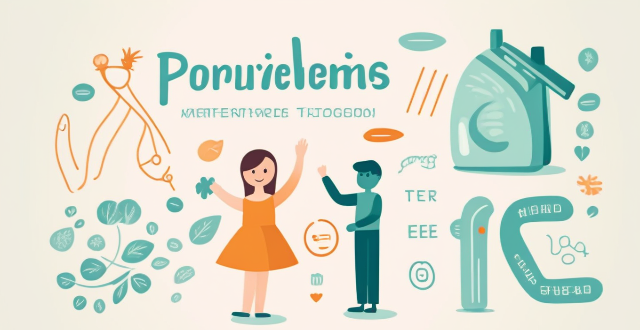
How can I protect my children from electrical hazards ?
The text provides a comprehensive guide on how parents can protect their children from electrical hazards. It emphasizes the importance of education, preventative measures, emergency response, and parental supervision in ensuring electrical safety for kids. The key steps include teaching children about electricity using simple language and visual aids, role-playing safe vs. unsafe scenarios, covering all outlets with plugs or surge protectors, childproofing the home by securing loose wires and unplugging devices when not in use, proper placement of devices away from water sources, regular inspections for faulty wiring, learning first aid including CPR training, keeping emergency numbers handy, supervising young children around electrical devices, and setting rules and boundaries regarding electrical safety. By following these guidelines, parents can significantly reduce the risk of electrical hazards affecting their children, emphasizing that vigilance and proactive measures are crucial for maintaining electrical safety in the family.

What actions should parents take to protect their children from climate change ?
Parents should educate themselves and their children on climate change, adopt sustainable living practices, support clean energy, conserve natural habitats, make healthy lifestyle choices, get involved in community initiatives, and prepare homes and communities for extreme weather events to protect their children from the impacts of climate change.

What strategies have been successful in promoting female education in developing countries ?
Promoting female education in developing countries is crucial to socio-economic development. Successful strategies include community engagement, government policies, education system reforms, partnerships, and technology integration. These efforts aim to ensure every girl has the opportunity for quality education.

What initiatives are being taken globally to include children in climate action planning ?
Including children in climate action planning is crucial for several reasons. Firstly, it acknowledges their rights and provides them with a platform to voice their concerns about the environment. Secondly, it encourages intergenerational dialogue and collaboration, which can lead to more effective solutions. Finally, involving children in climate action planning helps them develop critical thinking skills, empathy, and a sense of responsibility towards the planet. Here are some initiatives that are being taken globally to include children in climate action planning: 1. UNICEF's Child-Friendly Cities Initiative 2. The Global Kids Climate Forum 3. The Youth4Climate Movement 4. The Fridays for Future Movement 5. The Climate Change Education Programme (CCEP) 6. The Earth Guardians Programme 7. The Eco-Schools Programme 8. The Children's Climate Prize 9. The Global Youth Biodiversity Network (GYBN) 10. The Youth Environmental Leadership Programme (YELP)
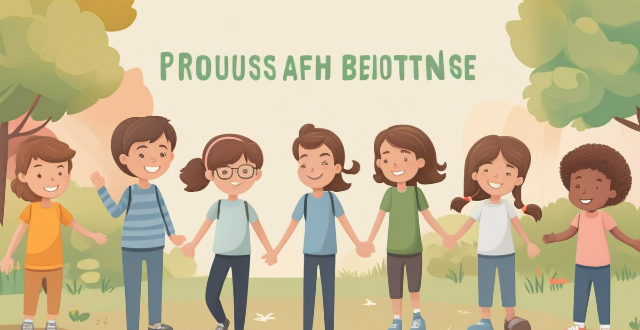
How does air pollution caused by climate change affect children ?
The provided text discusses the impact of air pollution, exacerbated by climate change, on children's health. It outlines both immediate and long-term health effects, including respiratory issues, developmental concerns, chronic conditions, and potential for other health problems. The text also highlights the socio-economic impact of these health issues, such as school performance and healthcare costs. Prevention and mitigation strategies are suggested, including reducing pollution sources, promoting clean energy, awareness and education, and urban planning. The conclusion emphasizes the need for collective action to protect children's health and future.
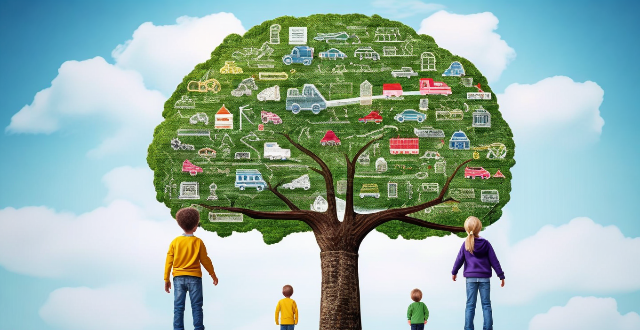
What are the benefits of teaching children about climate change ?
Teaching children about climate change is crucial for their future, empowering them to take action and make a difference. It enhances their awareness, critical thinking skills, environmental stewardship, innovation, preparation for future careers, empathy, responsibility, healthy habits, resilience, and interest in science and technology. This education can lead to informed decision-making, problem-solving abilities, responsible behavior towards the environment, and a sense of global citizenship. By teaching children about climate change, we are preparing them to confront one of the most significant challenges facing our planet.
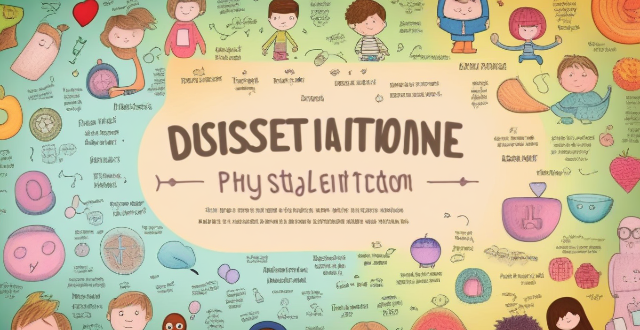
Is there a connection between physical fitness levels and academic performance in children ?
This text discusses the potential correlation between physical fitness levels and academic achievement in children, highlighting research findings that suggest a positive relationship. It outlines various mechanisms through which physical activity may improve cognitive functions and behavior, leading to better academic performance. The text also emphasizes the importance of incorporating physical education into school programs and encourages family and community involvement in promoting physical activities among children.
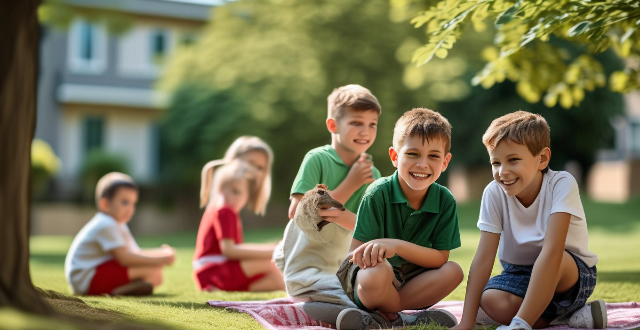
What role do schools play in promoting child safety education ?
Schools play a crucial role in promoting child safety education. They create awareness through classroom instruction, assemblies, and workshops on topics like internet safety and emergency preparedness. Practical application is emphasized through drills, simulations, and field trips with safety guidelines. Physical safety measures include secure campuses and safe playgrounds. Emotional and mental health support is provided through counseling services and peer support programs. Family involvement is encouraged through parent-teacher conferences and information sharing. Community partnerships with local law enforcement and emergency service workshops enhance safety education. Safety topics are integrated into the curriculum through cross-curricular teaching and service learning projects. Clear policies and consistent procedures ensure everyone knows how to respond in emergencies. Resource allocation prioritizes safety equipment, training, and updating facilities. Overall, schools collaborate with families and community partners to effectively prepare children for potential risks and protect themselves in various situations.
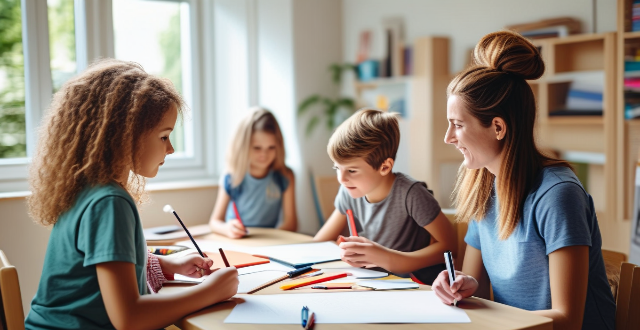
How can parents balance work and providing quality education at home ?
Balancing work and providing quality education at home can be a challenging task for parents. However, with proper planning and execution, it is possible to achieve both goals effectively. In this article, we will discuss some strategies that parents can use to balance their work responsibilities while ensuring their children receive a high-quality education at home.

Can parents take out loans for their children's education ?
The article discusses the options available for parents who want to take out loans for their children's education. These options include federal student loans, private student loans, and parent loans. Federal student loans offer low interest rates and flexible repayment terms, while private student loans have higher interest rates but more flexible repayment options. Parent loans are specifically designed for parents who want to help their children pay for college. The article emphasizes the importance of carefully considering all options before choosing the best one that suits the parents' financial situation and goals.